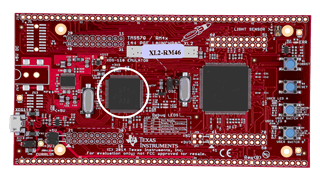Part Number: LAUNCHXL2-RM46
Other Parts Discussed in Thread: TM4C129ENCPDT, UNIFLASH, TMDSEMU110-U, TM4C1294NCPDT,
Tool/software:

I am working with a TELIT CINTERION cellular module (LE910C1_EU) and I want to use the FOTA of this module to update my micro and I have the following questions:
¿Es posible obtener las librerías en C del JTAG XDS110 para cargarlas e instalarlas en el micro TM4C129ENCPDT?, el cuál actuará como compilador de mi micrcontrolador principal (RM46). Is it possible to get the C libraries from the XDS110 JTAG to load and install them on the TM4C129ENCPDT micro, which will act as a compiler for my main microcontroller (RM46)?
For USB communication between the processor (PC) and the TM4C129ENCPDT microcontroller, are specific USB drivers required or are they standard?

